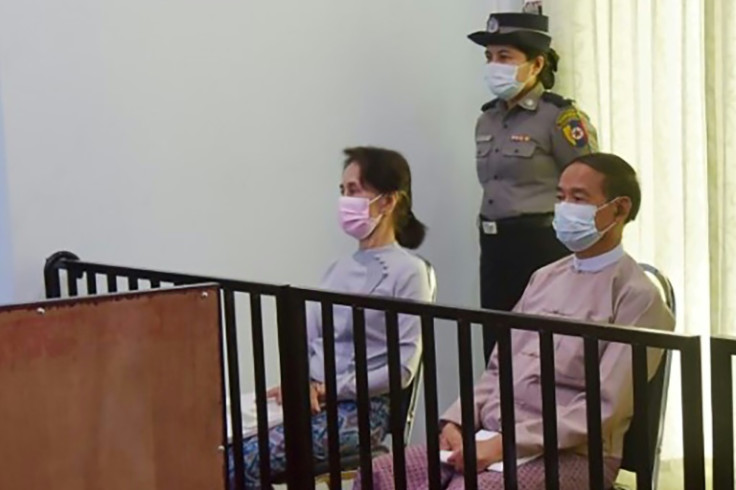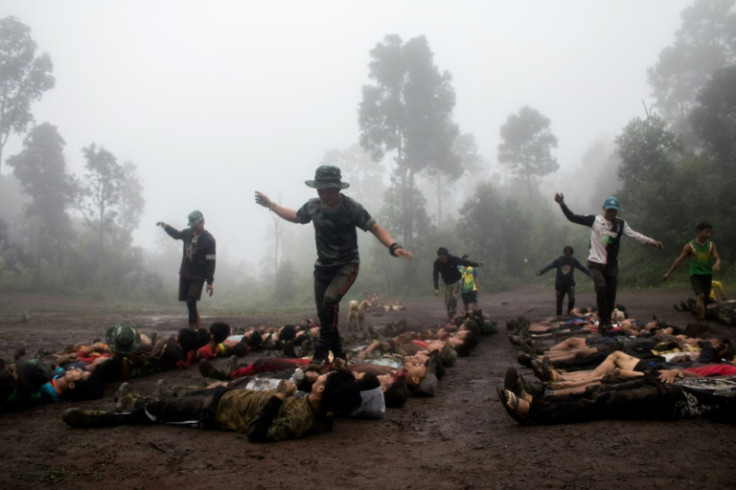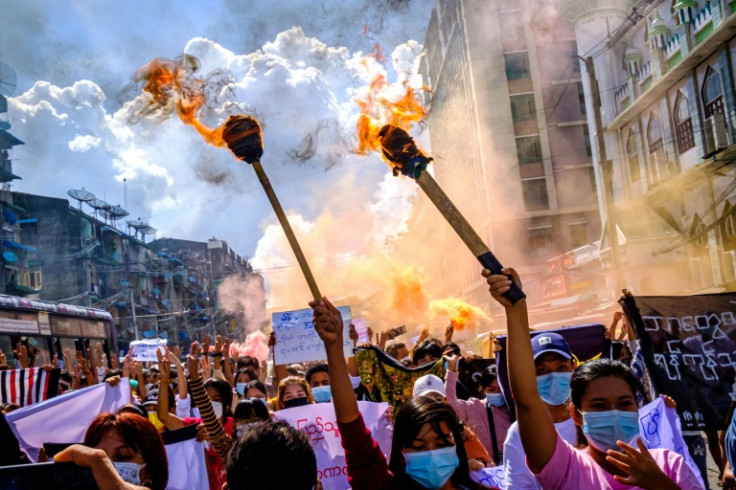Myanmar's Suu Kyi To Hear Final Verdicts From Junta Court
A Myanmar junta court is expected to give its verdicts on the final charges against jailed civilian leader Aung San Suu Kyi on Friday, closing the military's latest battle with the democracy figurehead.
Suu Kyi has been a prisoner since the generals toppled her government in February last year, ending the Southeast Asian nation's brief experiment with democracy.
The Nobel laureate, 77, has already been found guilty on a raft of charges ranging from corruption to illegally importing walkie-talkies and breaching the official secrets act, and has been jailed for 26 years.
Journalists have been barred from the proceedings, which rights groups have slammed as a sham designed to remove Suu Kyi from Myanmar's political scene.
The remaining five corruption charges relate to the rental of a helicopter for a government minister, a case in which Suu Kyi allegedly did not follow regulations and caused "a loss to the state".
Each offence carries a maximum jail term of 15 years. In previous corruption cases, the court has generally sentenced Suu Kyi to three years per charge.
Last week, in the United Nations Security Council's first resolution on the situation in Myanmar since the coup, it called on the junta to release Suu Kyi.
It was a moment of relative unity by the council after permanent members and close junta allies China and Russia abstained, opting not to wield vetoes following amendments to the wording.
Suu Kyi is currently imprisoned in a compound in the capital Naypyidaw, close to the courthouse where her trial is being held, and has been deprived of her household staff and pet dog Taichido.
Since the coup, she has largely disappeared from public view, seen only in grainy state media photos from the bare courtroom.
The country has been plunged into turmoil, with some established ethnic rebel groups renewing fighting with the military in border areas, and the economy in tatters.
"People's Defence Forces" eschewing Suu Kyi's strict policy of non-violence have also sprung up to battle the junta and have surprised the military with their effectiveness, observers say.
Analysts say the junta may allow Suu Kyi to serve some of her sentence under house arrest while it prepares for elections it has said will take place next year.
The military alleged there was widespread voter fraud during 2020 polls won resoundingly by Suu Kyi's National League for Democracy party, although international observers said the elections were largely free and fair.
More than 2,600 people have been killed in a crackdown by the military on dissent, according to a local monitoring group.
Rights groups have accused the military of extrajudicial killings and launching air strikes on civilians that amount to war crimes.
The junta meanwhile, says that "terrorists" have killed over 4,000 civilians.



© Copyright AFP {{Year}}. All rights reserved.




















